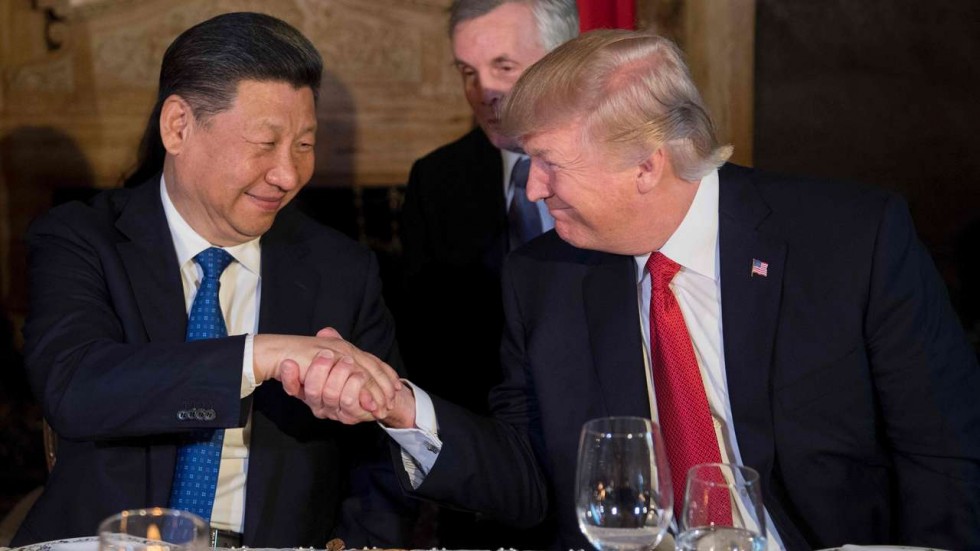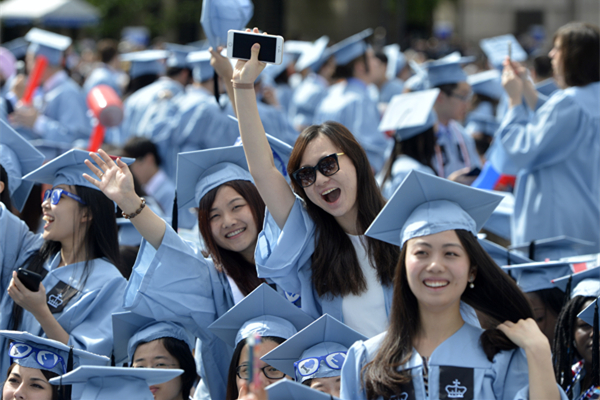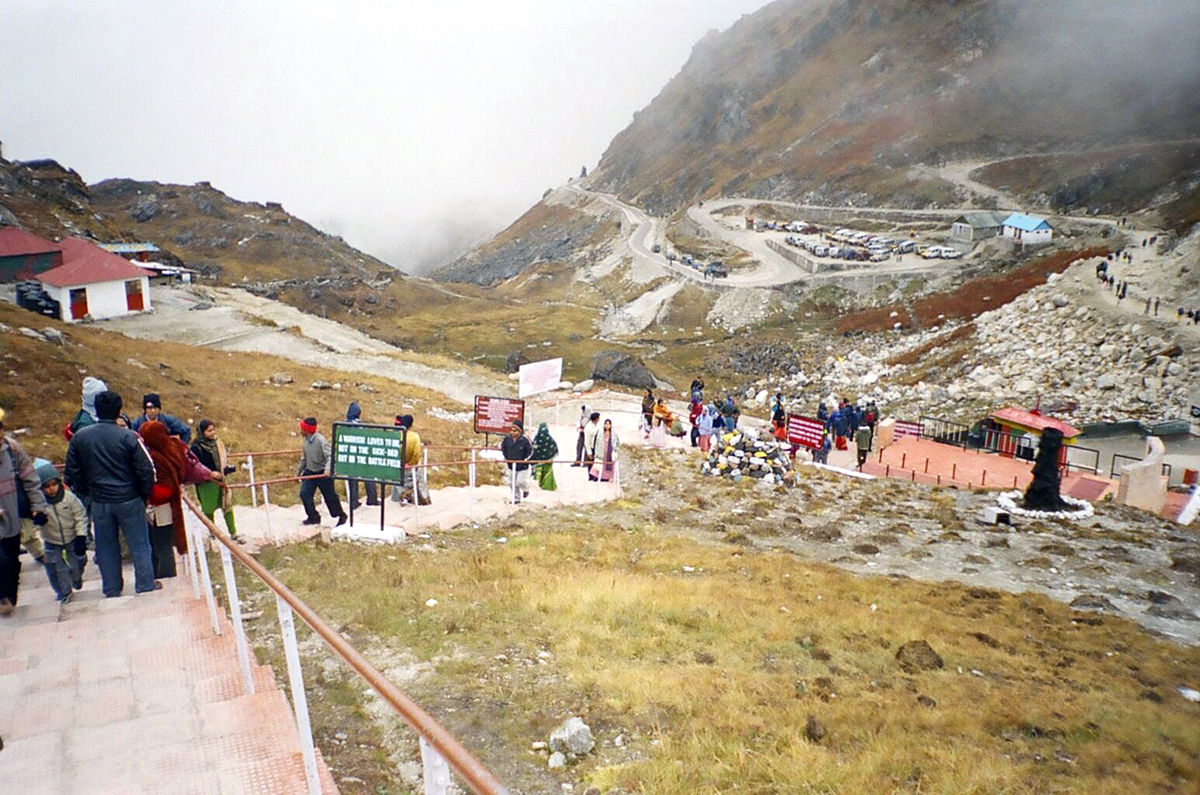
 Now is the Trump Honeymoon with China Over?
Now is the Trump Honeymoon with China Over?Two weeks ago, many media outlets declared that the "short unexpected honeymoon China enjoyed with Trump seems to be in trouble" after Trump tweeted, "While I greatly appreciate the efforts of President Xi & China to help with North Korea, it has not worked out." Our June 23 China This Week newsletter detailed disagreement on how much weight should be given to President Trump's tweets when assessing the state of the diplomatic relationship between Beijing and Washington. However, Trump struck the same tone ahead of a meeting with President Xi on the sidelines of the G20 summit in Germany, tweeting "Trade between China and North Korea grew almost 40% in the first quarter. So much for China working with us - but we had to give it a try!"
Unlike the relatively smooth lead-up to the first summit between President Xi and Trump last April, the U.S. enacted two significant policy changes toward China: first by placing sanctions on a number of Chinese businesses that trade with the DPRK, and also by completing a weapons sale to Taiwan. Recent actions by Secretary Tillerson and U.S. Ambassador Nikki Haley show that cabinet-level officials are also sharing Trump's frustration with China in trying to contain North Korea's development of nuclear weapons. Tillerson recently downgraded China in a human trafficking report for concerns about North Korean labor crews in China that are contracted through Pyongyang and provide currency for the North Korean leadership, and Haley strongly condemned China's trade with North Korea saying, "There are countries that are allowing, even encouraging trade with North Korea, in violation of U.N. Security Council resolutions. Such countries would also like to continue their trade arrangements with the United States. That's not gonna happen. Our attitude on trade changes when countries do not take international security threats seriously."
Chinese scholars maintain that a peaceful resolution is possible, again proposing a "dual track" solution in which North Korea stops weapons tests in exchange for the U.S. and South Korea to cease regional military exercises. This solution echoes Beijing's interests in avoiding a messy refugee crisis or a nuclear fallout in their own backyard. In a Los Angeles Times op-ed, Doug Bandow of the Cato Institute argues that unilateral pressure on North Korea will not work. "The Trump administration must therefore convince Xi's government that punishing North Korea benefits China."
While it is clear that the brief honeymoon between Trump and China is over, many expect future points of friction in areas of trade--especially as the 100-day trade plan concludes July 16th. Axios predicts that "the [Trump] administration is headed toward a more tailored approach that targets China and countries through which it trans-ships steel — Vietnam, for example. That could include possible tariffs, based on unfair trade practices, like dumping." Meanwhile at the G20 summit in Hamburg, President Xi made a jab at Trump's "America First" policies, for "stoking geopolitical risks through calls to reverse globalization and return to protectionism."
 To Return or Stay, That is the Question
To Return or Stay, That is the QuestionWriting in Sixth Tone, Nina Huang touched on a common crisis in the minds of young Chinese students who choose to study in the U.S., that is, should one stay or return to China? Specifically, Huang writes about the increasing number of Chinese researchers who are deciding to stay at U.S. universities because of the rigidity of the Chinese education system in allotting grants for research and the limited number of professor positions. Xinhua reported (link in Chinese) that "in one department at Tsinghua University in Beijing, 30 associate professors competed for one full professorship."
In an article for China-US Focus, Qin Xiaoying presented a different picture: "By 2016, a total of 4.58 million Chinese students had studied in overseas colleges and educational institutions. While many people thought that these students would never come back once stepping abroad, already 3.22 million students have returned and engaged in different types of jobs, accounting for about 70% of the overseas Chinese students." He writes that more of the returning students majored in science and engineering, filling new tech sector jobs in China's burgeoning high-tech industries.
Whether Chinese students choose to stay in the U.S. or return to China, many of these students (around 300,000 who choose to study in the U.S. each year) may relate to the feeling of being caught in between both cultures. Shen Lu explores these themes in a recent personal essay, saying "I am definitely not American, and I have no desire to become one. My mindset hasn't shifted to a nationalist one, nor have I joined the 'China-bashing club,' while I'm certainly critical about all its faults. Watching China from afar, I've gained a much clearer view of its problems than when I was on the ground covering and living through them."
 Tencent Stock Slumps after People's Daily Calls its Popular Game "Poison"
Tencent Stock Slumps after People's Daily Calls its Popular Game "Poison"In a striking example of how Chinese state media can affect the actions of companies, Tencent Holdings lost $17.5 billion in market value after The People's Daily described one of it's video games as "poison" and a "drug" harming teenagers. The fantasy role-playing game, Honor of Kings, is massively popular with around 200 million players. But as the South China Morning Post writes, "its popularity has compelled teachers and parent to complain that children are too addicted to the game."
Tencent responded by rolling out new rules to limit the amount of time younger users can spend playing the popular game. Eurogamer.net detailed the news rules: "Players under 12 are limited to one hour of gameplay each day, while those aged between 12 and 18 are limited to two hours a day. The company also stopped users under 12 from playing after 9pm." Tencent stated on its official WeChat account: "There are no rules to prevent indulgence in mobile games in China, but we decided to be the first to try to dispel parental worries by limiting play time and forcing children to log off."
China is still the world's largest gaming market by revenue and as reported in Reuters, is expected to represent a quarter of global games sales by the end of the year. Tencent shares have rebounded slightly after falling 5.1% after the initial announcement.
 This Week in Chinese History
This Week in Chinese HistoryOn July 5, 2006, the Nathu La Pass between India and China, re-opened for trade after 44 years of being closed off. Nathu La is a mountain pass in the Himalayas that connects the Indian state of Sikkim with China's Tibet Autonomous Region. It is one of the three open trading border posts between China and India. During the 1962 Sino-Indian War, Nathu La witnessed skirmishes between soldiers of the two countries. It was during this period of conflict that the passage was sealed. The passage remained closed for more than four decades, reopening in 2006 following improved relations between China and India and negotiations under Indian Prime Minister Atal Bihari Vajpayee.
Prepared by China-US Focus editorial teams in Hong Kong and New York, this weekly newsletter offers you snap shots of latest trends and developments emerging from China every week, while adding a dose of historical perspective.
- 2017-06-30 China Passes New Intelligence Law
- 2017-06-23 The End of China’s Honeymoon with Trump & Diplomatic and Security Dialogue
- 2017-06-16 Climate Change and Reliable Data Dealt Blows
- 2017-06-09 India, Pakistan formally welcomed into the Shanghai Cooperation Organization
- 2017-06-02 Once Partners in Fighting Climate Change, Trump Retreats, China Stays Steady on Paris Climate Accord
- 2017-05-26 Chinese Missile Frigates Confronts USS Dewey as U.S. Resumes FON Operations in South China Sea
- 2017-05-19 The Belt and Road Forum Concludes Leaving Behind Mixed Reactions
- 2017-05-12 Beijing, Washington Reach First Trade Deal Under 100-day Plan
- 2017-05-05 Degree of Autonomy Decaying in Hong Kong?
- 2017-04-28 Aircraft Carriers, Submarines, and Jetliners: Now Made in China
- 2017-04-21 Green Cards & Red Lines
- 2017-04-14 U.S Beef for Chinese Chicken? More Hollywood Films in China?
- 2017-04-07 The Xi-Trump Summit in Florida
- 2017-03-31 Google Makes a Comeback to China?
- 2017-03-24 Xi and Tillerson Trade Phrases
- 2017-03-17 Sec. Tillerson Visits Asia ahead of Xi-Trump Summit
- 2017-03-10 Defending China's Defense Budget
- 2017-03-03 The Korean Peninsula Draws Headlines
- 2017-02-22 CPC Meets to Reaffirm Commitments in Anticipation of "Two Sessions"
